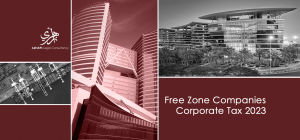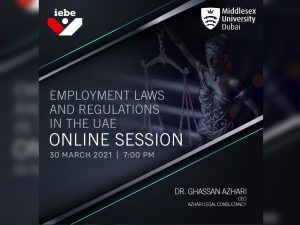The new DIFC Employment Law, Law No. 2 of 2019, which was enacted on 30th May 2019 and will come into force on 28 August 2019, revised its provisions regarding inter alia sick pay, end-of-service gratuity, and settlements in a manner that protects and balances the interests of both employers and employees. Furthermore, it introduces new regulations such as provisions regarding paternity leave and anti-discrimination. Regarding its applicability, where a claim has been initiated on the basis of the old DIFC employment law, any provisions which may apply to such proceedings will be deemed to survive the repeal of the old law, if no equivalent provision exists under the new law. Whereas, any to be commenced legal proceedings must be interpreted under the new DIFC Employment Law. It is important to note that the new law mandates that proceedings must be initiated no later than 6 months following the employee’s termination date.
We have listed some of the key changes of the new DIFC Employment Law in summarized form for you.
Sick pay
The new provisions include a reduction of the statutory sick pay. Now, an employer shall pay sick pay to an employee at 100% of the employee’s daily wage for the first 10 work days of sick leave taken in a 12 month period; 50% of the employee’s daily wage for the next 20 work days of sick leave taken in the same 12 month period. The employee shall not be entitled to receive any wage for any additional sick leave taken in the same 12 month period. In cases where an employee takes more than an aggregate of 60 work days of sick leave in a 12 month period, the employer may terminate the employment contract with immediate effect on written notice to the employee.
Penalties for late payment
The new law also limits the application of late fines for not paying salary or end-of-service settlements on time. Penalties will only be triggered if the amount due and not paid to an employee is held by a Court to be in excess of an employee’s weekly wage. A late payment penalty will be waived entirely by a Court in respect of any period during which a dispute is pending in the Court or in case the employee’s unreasonable conduct is the material cause of the employee failing to receive the amount due from the employer. Moreover, penalties will be capped at 6 months’ daily wage as a result of a new 6 month limitation period for employees to bring claims.
End of service gratuity / pension
Regarding the end of service gratuity, the new law introduced some key changes regarding how and when it will be paid. Under the old law the employee’s basic wage was the basis for calculation of the end of service gratuity. As per the new law the employee’s basic wage for the purpose of the end of service calculation shall not be less than 50% of the employee’s annual remuneration package (including an employee’s allowance but excluding bonuses, grants, commission or other payments which are discretionary, non-recurring expressly agreed not to form part of an employee’s wage or allowance).
One important change is that the end of service gratuity will be payable even in cases where the employee was terminated for cause.
Furthermore, instead of the end of service gratuity, employees may choose to receive pension contributions into a non-UAE retirement fund (or similar scheme) instead of receiving a gratuity payment, provided the contributions made by an employer are not less than the gratuity payment the employee would have been entitled to receive.
Settlement agreements
The requirements of the new DIFC Employment Law are minimum requirements and a provision in an agreement to waive any of those requirements, except where expressly permitted by law, is void in all circumstances. However, an employee may waive any right, remedy, obligation, claim or action under this Law by entering into a written agreement with their employer to terminate their employment or to resolve a dispute with their employer, provided the employee warrants in the written agreement that they were given an opportunity to receive independent legal advice from a legal practitioner as to the terms and effect of the written agreement;
Recruitment costs
As per the new DIFC Employment Law an employer is not permitted to recoup from an employee any costs or expenses that incurred in the course of recruiting the employee, unless the employee terminates their employment contract for any reason other than termination for cause and their termination date falls within a period of 6 months from the employee’s date of commencement of employment (provided such expenses were directly incurred by the employer in the course of recruiting the Employee, are supported by proof, and such provision was included in the employment contract).
Paternity leave
Provisions targeting employees include the introduction of 5 days paid paternity leave provided he was continuously employed by his employer for at least 12 months.
Discrimination
As per the new law a provision or practice which is discriminatory in relation to the employee’s sex, marital status, race, nationality, age, pregnancy, maternity, religion, or mental or physical disability is prohibited. With respect to age an employer does not discriminate against an employee on grounds of age if the employer can show his treatment of the employee to be a proportionate means of achieving a legitimate aim. The DIFC Courts have the discretion to provide employees who file a claim for discrimination or victimization with a remedy, by making a declaration as to the rights of the parties, award the employee compensation (up to an amount equivalent to the employee’s annual wage), make a recommendation that within a specified period the respondent takes specified steps for the purpose of obviating or reducing the adverse effect on the complainant, or do a combination of the aforementioned. If the employer fails to comply with any recommendations set by the DIFC Court and compensation has been awarded, the DIFC Court has the power to grant compensation to the employee up to 2 times the equivalent of the employee’s annual wage.









